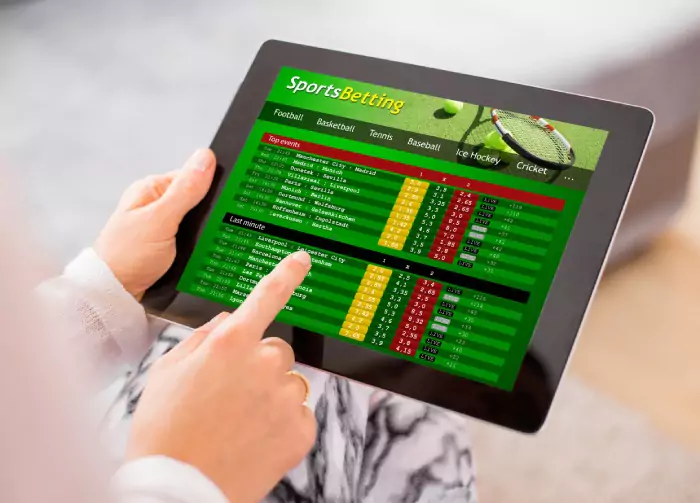If you bet on sports, you’ve probably wondered about the betting exchange vs bookmakers comparison. Casual bettors tend to use terms interchangeably, but they aren’t exactly the same. While both let punters place wagers, they operate differently and can affect the betting strategy.
An online betting exchange uses a traditional model. Users place competing bets, and set the odds they are comfortable with. In the case of a bookmaker, the operator determines the quote for each market. In other words, you bet against the operator.
Still, a lot of people might not fully get how exchange betting works or what sets them apart from bookmakers. This short guide will help clarify the betting exchange vs bookmaker differences and share some insights on how to leverage each option in a strategic way.
Jump toBetting Exchange Explained
So, what is a betting exchange? To put it simply, it’s a platform that hosts competing bets. This way. Here, you can back a selection to win, just like with a bookmaker, or lay a selection to lose, which you can’t do with traditional bookies. The payout funds come from other players, and bookies just take a cut for hosting the exchange.
In essence, you post your bet and set the odds you want to offer. Other punters can then choose to accept your odds and place their bets against yours. This P2P betting system often provides better odds and more betting options because there’s no middleman.
Example of Betting on Betting Exchange
As stated, betting on exchange sites is slightly different than using traditional bookmakers. Below you’ll find some betting exchange examples in action:
- Let’s say you want to wager on a football match between Manchester City and Liverpool. On a betting exchange, you can back Manchester City to win at the odds you set. You can also lay Manchester City, which means you’re betting on them to lose.
- Imagine you decide to back Manchester City to win against Liverpool. You set your odds at 2.5 and post your £100 bet on the exchange. Another punter sees your offer and decides to lay Manchester City.
- If Manchester City wins, you take the payout based on the odds you’ve set. In this case, the potential payout would be £250 (£100 x 2.5). After deducting your initial stake, your payout would be £150.
- The exchange site also takes a fee for hosting your wager, so your payout might be £245 if their hosting fee is 2%.
- However, if Manchester City doesn’t win, the other punter collects the £100 you staked. This system offers more control and potentially better winnings.
Benefits of Betting Exchange
The main advantages of a sports betting exchange are:
- Flexibility: Create your own bets, set your odds, and change your wagers during live events. Traditional bookmakers do not offer such control.
- Favourable odds: Exchanges take a small commission on winning bets instead of setting the odds. This often means better value for your bets.
- Social interaction: Bet against other punters, discuss strategies, and learn from more experienced users.
- Act as a bookmaker: You can lay bets and offer odds to other users, potentially winning from their losses. This feature adds a new dimension to betting not available at traditional bookies.
- Welcomes arbitrage bettors: Using multiple exchanges allows you to create bets that back both sides to your advantage.

Traditional Bookmaker Explained
Since we’ve explained what a betting exchange is, now it’s time to answer another question, which is – what is a sportsbook? Traditional bookmakers, or sportsbooks, are establishments where you can place bets on various sports events.
Bookmaker is a term that includes both physical walk-in objects and online betting platforms. Unlike betting exchanges, bookies set the odds themselves and take bets directly from the users. They earn revenue by offering odds that give them a slight edge over the punter.
What’s more, bookmakers have a drastically wider market coverage compared to regular exchanges. So you will find a slew of over/under wagers, spread or against the spread bets, unique player props, and more.
Example of Betting on a Traditional Bookmaker
Traditional bookmaker sites offer a straightforward betting experience. Let’s say you want to bet on a Premier League match between Arsenal and Chelsea. The bookmaker offers the odds of 1.8 for Arsenal to win, 3.2 on Chelsea, and 4.0 on a tie outcome. There will also be options for Arsenal to win or tie, as well as Chelsea to win or tie. These are safer, but have lower payouts.
You decide to place a bet of £100 on Arsenal. If they win, you receive £180. However, you can’t set your own odds on a traditional sportsbook site, nor can you bet against other punters. You bet directly against the bookmaker.
Benefits of a Traditional Bookmaker
Some advantages of traditional bookies include:
- Promotions and bonuses: Bookies often offer free bets and promo codes.
- Simple to use: Placing a bet is straightforward. Even beginners can use traditional bookies without too much hassle.
- Variety: Traditional bookies offer a wide range of sports and markets to bet on.
- Bigger audience: Traditional bookmakers are more popular and widely used, which leads to better liquidity and more betting options.
- Accumulator bets: Put various wagers on a single slip and combine their odds

Key Differences Between Betting Exchanges and Bookmakers
When considering betting exchange vs sportsbook options, it’s important to understand how these two systems differ. The table below details the difference between betting exchange and bookmaker, thus making it easier to see how each works:
| Betting Exchange | Bookmaker |
|---|---|
| Betting against other players | Bet against the bookmaker |
| Odds set by users | Odds are set by sportsbook |
| Often better odds compared to bookmakers | More incentives or promos for users |
| Users can change bets during live events | Possibility to make accumulator bets, or use a bet builder |
| More suitable for advanced bettors | Better option for new punters |
Betting Exchange vs Bookmaker – Pros and Cons
Understanding the pros and cons of a betting exchange platform and a traditional bookmaker can help you decide which suits your betting style best. Below you’ll find the advantages and disadvantages of bookmaker and betting exchange sites:
Betting Exchanges
| Pros | Cons |
|---|---|
| Odds are more favourable than bookmaker odds | Not as many betting markets |
| Changing bets is possible even during live events | Fewer sites offer betting exchanges |
| Social interaction with other punters | Not compatible with promotions |
| Creating arbitrage bets |
Bookmakers
| Pros | Cons |
|---|---|
| Easy to understand and use | Bets can’t be changed once placed |
| Offers various promotions and bonuses | Odds are fixed by the bookmaker |
| Widely available, both online and as physical objects | |
| A huge variety of sports and markets to bet on |
Betting Exchange vs Bookmaker – Final Verdict
Understanding the difference between a betting exchange and a bookmaker can help you choose the best option for your betting style. In short, if you want to be more prudent and use a strategic approach, a betting exchange is a better option. Highrollers who want to place daring bets and who want more options will find bookmakers more interesting or dynamic.




